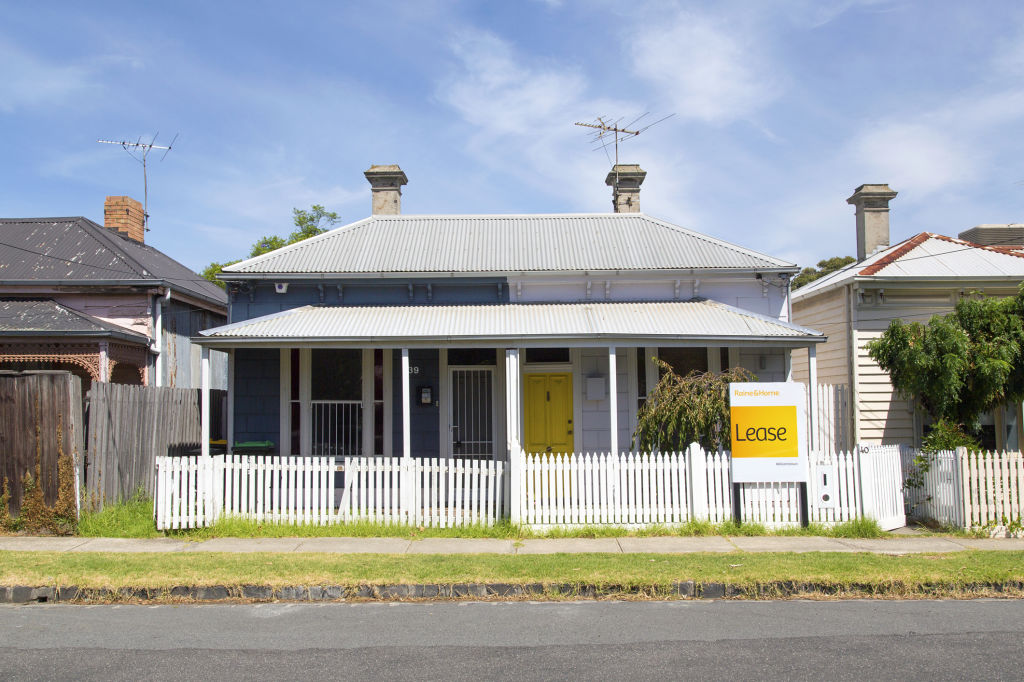Is rent still dead money after the COVID-19 crisis?

“I’m not paying someone else’s mortgage,” is often the justification for why it’s better to buy a property rather than rent.
But experts say it’s perfectly possible to generate a good return with your money across many different asset classes, not just property.
“Not investing at all is the trap,” says Kyle Frost, an independent financial adviser with Millennial Independent Advice. He says there’s no easy answer as to whether it’s better to own or rent at this part of the property cycle.
“Rents have come down materially in some locations and tenants have more options than in the past when the rental market was very competitive.”
At the same time, interest rates have come down, making property more affordable than ever – at least until rates rise again.
“But there’s lots of uncertainty with the economy, jobs and the property market. Some people will prefer to wait to buy property and lock in a cheap rental in the meantime. Others might be ready to buy their dream home now on favourable terms,” Frost says.
Southshore Finance director Michael Coombes has an alternate view.
“At an economic level, it’s easy to say now’s not a good time to invest in property with the risk of falling property values, the potential for a post-COVID-19 recession or depression and an increase in unemployment.”
But current market issues are likely to be relatively short-term. Buying a family home is a medium to long-term strategy and this should be the focus for a buyer.
“Owning your home is part of the Aussie way of life. The decision to buy a home is overwhelmingly an emotional one. Buyers tend to make the decision primarily on how it will affect their lifestyle. Potential capital growth is secondary,” Coombes says.
As a result, Coombes says the arguments in support of buying a home involve more than merely financial considerations such as stability for the family unit.
Nevertheless, investing in a family home does have one benefit few if any other asset can boast. Under current tax rules, the primary residence is capital gains tax-free.
Nevertheless, Luke Maroney from property investment consultancy Search Party Property, notes the advantages that come with renting.
“Areas close to the city are often better to rent than own – but crunch the numbers. Renting is more flexible than owning. It’s easier to move out of a rental over selling your home, which takes a lot longer.
“But if you rent you need approval to make changes to your home, you may need to leave if the owners want to sell or the rent could increase. Also property prices could rise and you might miss out on capital growth.”
Maroney also says it may be better to rent than own in a market or area without capital growth. “People forget Sydney property prices were stable and had no growth between 2002 and 2012.”
Alex Jamieson from AJ Financial Planning agrees that renting has its advantages. These include saving for a deposit and working out where you want to live long-term.
But he says low interest rates make home ownership compelling. “This, coupled with an expectation there will be a growing number of distressed sellers from COVID-19, presents interesting opportunities for home buyers.”
Jamieson says a drop in rents and the ability to negotiate with nervous landlords is likely to be short-term. “The favourable rent environments will be neutralised once the COVID-19 rent relief measures have passed.”
Is a REIT right for you?
There is another option: property trusts. Real estate investment trusts offer investors the opportunity to access the property asset class, without having to pay rates, organise to maintain properties or secure tenants. They can be an interesting option for some investors who wish to have an exposure to property without directly owning one.
When weighing up whether a REIT is right for you, don’t forget to factor in costs associated with managing the investment and how they affect your overall return. Also assess the quality of the investment manager and remember any growth the asset enjoys will be subject to capital gains tax.
REITs have been heavily sold off this year as investors have become increasingly nervous about future demand for office space given many people who once travelled to the city each day are now working from home.
So there are opportunities to buy high-quality REITs at bargain basement prices. Jamieson says these are assets that can suit people with a long-term investment horizon.
“You might look at a diversified REIT for a small portion of your funds if you’re saving for a deposit and you are still a number of years off buying a home. But you need a minimum time horizon of five years to capitalise on this opportunity. Any shorter and the risks are too high for this investment, due to how these assets fluctuate,” Jamieson says.
But he says people who are ready to buy now would do better getting into the market than investing in a REIT.
“Buying a house by leveraging a 20 per cent deposit should potentially provide a better financial outcome than investing in a property trust right now. This is because the effect of compounding on a larger asset means it should outperform a smaller one in the longer term.”
A REIT investment could potentially be geared using a margin loan, which would magnify the exposure. But Jamieson says this would be too risky for someone wanting to buy a property within the next three years.
There’s no right or wrong when it comes to the way you access the property market. The right choice will depend on personal preference, your investment horizon and appetite for risk.
We thought you might like
States
Capital Cities
Capital Cities - Rentals
Popular Areas
Allhomes
More







